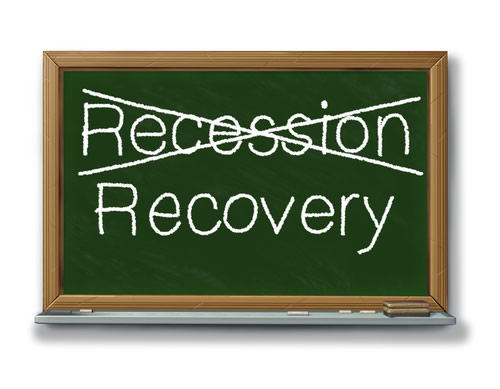
At our company, we bring a variety of housing perspectives together for a whole new look at our industry. We have the risk-perspective that crunches numbers and mines data. We have the emotion-driven homebuying perspective. And we have nuts and bolts of what it takes to get houses inhabited.
Recovery has to do with economics and data. It has no correlation with the psyche of the homeowner. But that psyche matters in today’s housing climate and we would all be wise to pay attention to how it has changed in our recent fall-out.
As the bottom keeps falling, and the spin doctors wax definite about what makes a recovery and what doesn’t, think about how it looks to so many different people.
From a bank perspective, recovery is all numbers and data. From a homebuyer perspective, recovery has to do with the individual.
We are a country of individuals who don’t see anything recovering on their monthly mortgage statement or amid the falling house values in their neighborhoods.
For all of these Americans, the very concept of recovery is irrelevant. For industry folks, economists, CEOs of banks, it’s a conversation that has little resonance for the very people who keep them afloat, their customers.
If my neighbors and I can’t sell our houses for more than we owe and move up to better digs, then there is no recovery as far as we’re concerned. Which means the psyche of the homebuyer matters quite a lot in today’s housing conversations.
And then there is the radical notion that there may be NO recovery. That this might be the best it gets, the new normal. Sit tight, get used to it, enjoy it even – it’s not getting back to high numbers and easy money like we had a decade ago. We won’t be building millions of houses anymore each year.
Maybe the new normal extends to our entire economy. Maybe unemployment is steady at 9% and that’s where it’ll stay. There surely won’t be more manufacturing jobs created in our country. It’s a new way of doing business, and we’d better accept what exists at this very moment than yearn for something different.
There’s no use hoping for a future that looks like our past. While there were good things about years past – free money, high property values, nice padding to sell for a profit and buy something bigger and better – it wasn’t all roses. The mountain of national debt before us wasn’t created singularly or overnight. Americans in every state are living on credit with their own mountain of debt. Our country has surfed a wave of irresponsibility for way too long.
The entitlement mentality has to give way to a more refined perspective now. Instead of woe is me, somebody help me get out of this mess I created, perhaps it’s time to look at helping ourselves.
What’s wrong with embracing where you are? Just because the American dream used to be getting ahead and keeping up with your neighbors doesn’t mean it’s the dream for all time. Take a deep breath, enjoy what you’ve got and redefine your expectations. It’s a new dream, and it’s not half-bad.
